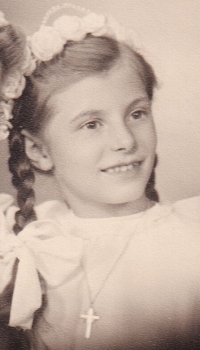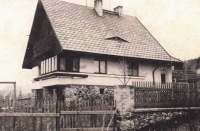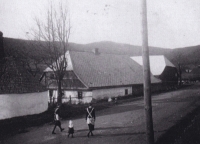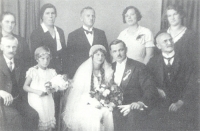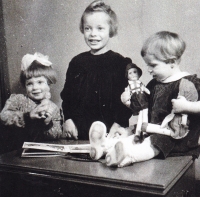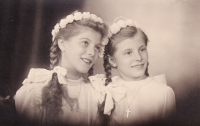First I was annoyed to hear so much Czech around me, but things got better

Download image
Heidrun Kuchler was born on 14 February 1939 in Železná Ruda, where she lived in the grandiose villa “Ville Kuchler” until 1945. Her mother, Maria, was from a prosperous farm in Sruby. Alois, her father, was a teacher at the city school and from April 1944 until May 1945 he was the commissioned mayor of Železná Ruda. After the bombing of Železná Ruda in April of 1945, her mother escaped with the children to their grandparents in Sruby and in November of 1945 the whole family fled over the border stream into Bavaria. What followed were their “worst years”, spent in unrelenting poverty and uncertainty. Their father was subject to the denazification process with both parents working for farmers. In 1947 their father was assigned a teaching position in Metting. The family later moved to Straubing, where Heidrun lives to this day. All the siblings became teachers, with Heidrun teaching at a secondary school despite dreams of a vocation in healthcare. She went into therapy to process her early childhood memories and her first visit to Šumava in the 90s was an emotional one. She took part in the re-consecration of the family chapel in Železná Ruda, but still stays away from Czechs.


